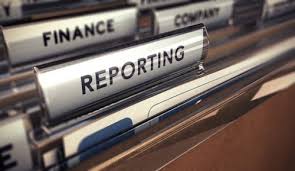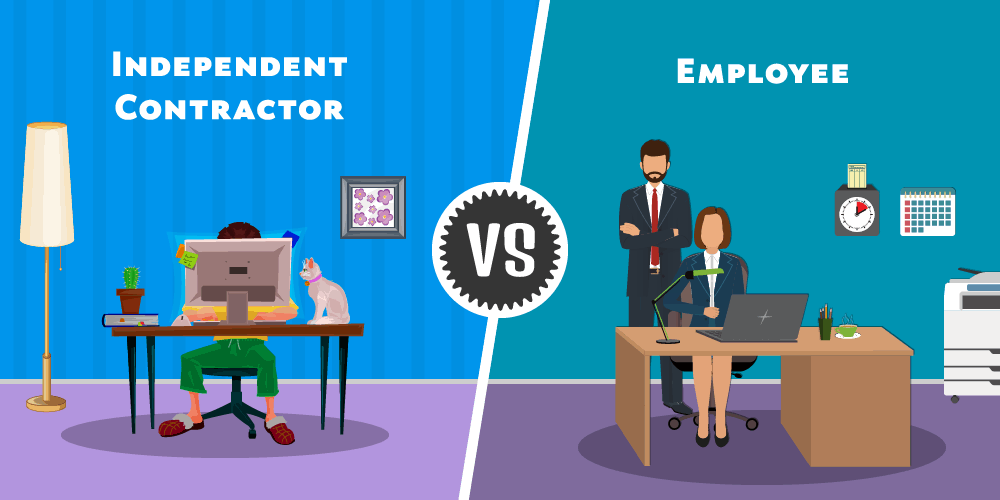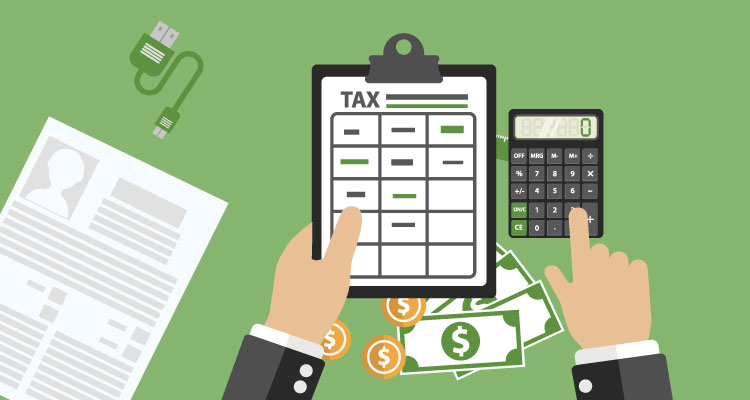Owning and operating a successful business can be one of the most fulfilling things one can achieve. You set your own hours, you’re your own boss, and best of all you’re building an asset for yourself. Starting a business though does not come without its challenges. The last thing a business owner wants after they have alleviated themselves of the initial stress of opening a business is to then deal with the stress of having tax issues. At Spaulding Legal APC we have seen countless cases where clients have become victims of tax issues based on specific things that were not put in place during the initial start up. Fortunately, there are steps that can be taken to avoid incurring tax issues after starting the business. In this blog, we will discuss the top seven components a new business owner should have to protect their business for the long haul.
1. Recordkeeping / Bookkeeping / Accounting
Business owners are often focused on the underlying service or product they offer, which can leave little time to maintain the business records and accounting system. This is a common mistake for many new business owners for a couple of reasons. First, accounting is how businesses “keep score.” In other words, how do you know if your pricing is correct? Or determine where you can cut costs to increase your profit margin? And the list goes on. Secondly, insufficient recordkeeping and accounting will jeopardized the accuracy of tax returns, which can lead to an untimely IRS audit (as you can imagine, audits are always untimely).

Now, I know what you are thinking…what is this going to cost me? Well, that answer varies from business to business. Additionally, it does not have to cost you anything (but time perhaps). What I mean by this is that you can utilize QuickBooks, an Excel spreadsheet, or even a notebook to track your income and expenses. However, be honest with yourself as to whether you have time to run the business and keep the books.
2. Keep Personal And Business Accounts Separate
This issue comes up more often than not when a business first starts. Now, perhaps when your business was in its infancy stage and was more of a hobby, making a bit of money, it was acceptable to use just one bank account. Once your business has become more than just a hobby it’s time to get a business account. This will not only go a long way for the bookkeeping aspect of your business but, this will also make sure your business can accurately point to what the business made and what expenses the business had. Everything business related will be running through an account used solely for the business so there shouldn’t be any grey area.
Another important reason for keeping separate accounts is that it makes an IRS audit much smoother. If you do not have separate accounts, the IRS will most likely disallow all expenses they are questioning. In turn, you will have to go back through the bank statements and try to argue what expenses were business and what was personal. The fact that these statements will most likely be several years old makes this process all the more difficult.
3. Tracking Business Vehicle Mileage and Expenses
If your business has vehicles, whether they are solely for business use or they are split between business and personal, tracking the total mileage and business mileage is essential. Tracking mileage for a vehicle used solely for business is fairly simple. Record the odometer on Jan 1 and again on Dec 31. Then, figure out the difference.
If the vehicle is split between business and personal use (which is usually the case), tracking the mileage can be a little more tricky. It is still necessary to track the beginning mileage for the year and the ending mileage for the year but, it is also necessary to track exactly how many miles are being driven for business and how many of those miles are for personal use (which includes commuting miles). This is a very important item to keep track of because vehicle usage is commonly audited by the IRS.

One way to keep track of business and personal miles is to keep a log. Yes, that means getting a notebook to keep in the vehicle and every time the vehicle is used the notebook should have a notation for how many miles were driven and whether it was for business or personal use. Sometimes though it can be hard to remember to do this. Of course with technology there are now apps that can help in tracking the mileage for a business vehicle. To see some of the best free apps for this check out Need To Track Your Mileage and Expenses? Here Are 6 Free Apps For That.
As for the business vehicle expenses such as gas, repairs, etc. you should track these as well (however, you will either deduct standard mileage or actual expenses but not both). The expenses can either be logged in the notebook used to track mileage, by the app used to track mileage, or if there is a bank account being used solely for the business the expense should show up there. Again, if the vehicle is used solely for business, the expenses are fully deductible. If the vehicle is used for both personal and business, the vehicle expenses will need to be split. How these expenses are split is dependent upon the usage of the vehicle a.k.a. the amount of business miles compared to personal miles.
4. Properly Classifying Employees
Let’s start by listing what constitutes an employee compared to an independent contractor.
1) Behavioral Control – the worker is an employee when the business has the ability to control the work performed by the worker (scheduled hours, uniforms, etc.).
2) Financial Control – the worker is an employee when the business has the ability to control the business and financial aspects of the worker’s job.
3) Relationship – the worker is an employee if the business is providing the worker with insurance, pension plan, vacation pay, sick pay, etc. Also, if the worker’s role in the business provides a key activity in the business and is for an indefinite period of time the worker would most likely be considered an employee.
For more information on this you can visit the IRS web page Understanding Employee vs. Contractor Designation or our blog The Consequences Of Misclassifying An Employee. As a general rule, if you live and operate your business in California and you pay workers, they should probably be classified as employees.

It may be tempting to classify employees as independent contractors for the purpose of avoiding payroll taxes, workers compensation insurance, etc., but, this would be a grave mistake. Not only would you be penalized for misclassifying employees but, you would also be responsible for paying all back payroll taxes for the employees from the time they began working for the business to the present. This could cause a huge liability for the business, not to mention the possibility of criminal prosecution (particularly in California).
On top of this, the misclassification of employees may not always be discovered by the IRS or state. In many cases the worker files for unemployment, which prompts an investigation from the Employment Development Department (“EDD”). In other cases, if the worker feels they should be classified as an employee rather than an independent contractor, they can file form SS8 to request that the IRS make the determination.
5. Filing Payroll Returns and Paying Payroll Taxes On Time
If your business has employees, it is very important to not only file the payroll returns on time but to also make sure the taxes are also remitted to the IRS and state. A mistake that many small business owners make is that they withhold the required payroll taxes from their employees but, they use this money for other business expenses. Eventually, it comes time to pay the payroll taxes but, the business is unable to pay, ultimately putting the business behind on their payroll taxes. This can be a very slippery slope if not corrected immediately.
Again, you as the business owner can certainly handle the task of filing and paying payroll taxes for the business. However, do you have time to run the business and be on top of the payroll as well? Most of the time it makes sense to hire a payroll service that can manage this for the business, allowing you to focus on managing and growing the business. For a list of some of the best payroll services available see The 54 Best Payroll Services for Small Business Owners.
6. Making Estimated Tax Payments
Estimated tax payments are a very common reason why a small business owner ends up owing at the end of each year. This all comes back to having the business books well kept. At the end of each quarter the books should show exactly how much money the business has made minus expenses. The money that is left is what is reported as income on your tax return and therefore needs to have taxes paid on it. Failing to make the estimated tax payments not only causes you to owe at the end of the year but, you will also be penalized for not making the estimated tax payments throughout the year. One easy way to stay on top of estimated tax payments is to use the IRS Electronic Federal Tax Payment System. This allows you to setup an automatic payment for an amount of your choosing. It also allows you to make an estimated payment in smaller increments if you would rather pay weekly, monthly, etc. rather than quarterly.

7. Hiring a Quality Tax Professional
Budgeting money from the business to pay for a knowledgeable and professional tax preparer is well worth it. Though it may be tempting to go with a tax preparer based solely on pricing, it usually comes back to haunt the business (owner) in the end. Having the business return professionally done goes a long way in protecting the business from an audit down the road. It’s also worth mentioning that if the tax preparer starts talking about how they can save the business money on the tax return by including deductions that the business owner did not provide, it’s time to cut ties with that tax preparer. There are many tax professionals out there that can prepare the return properly, so avoid going to a less than reputable tax preparer just to save a few bucks up front.
Conclusion
Starting a business can be overwhelming and the red-tape (if you will) that comes with it only makes things harder. This blog was drafted to help individuals planning to start their own business understand some of the important considerations that oftentimes get overlooked. The last thing any entrepreneur wants is to build up their business and then have a few early mistakes come back to sink it. The bottom line is make sure the little things are taken care of from the start so the business can grow and become successful.
Related Articles
